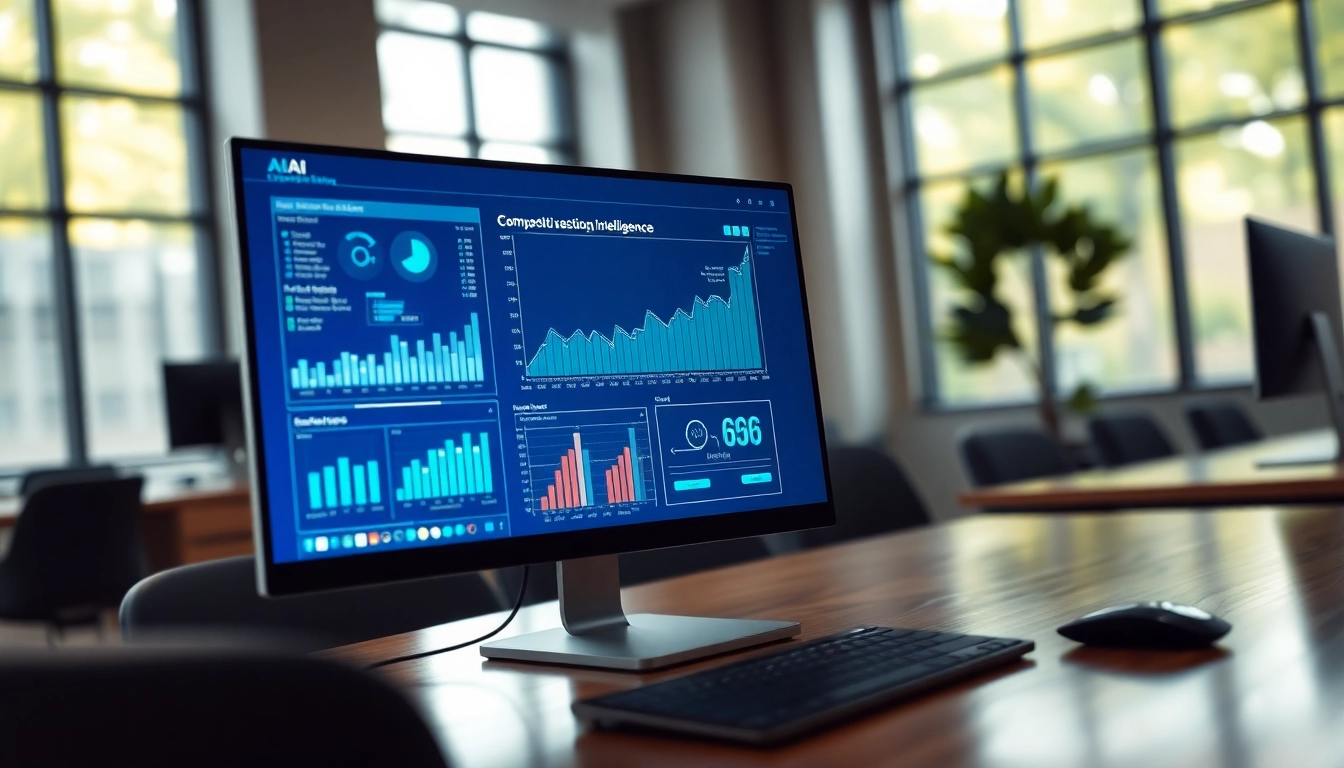Understanding AI Marketing Agents
The digital marketing landscape is evolving rapidly, with businesses seeking innovative ways to engage their audiences and streamline operations. Enter AI marketing agents—a game-changing component of modern marketing. These software tools leverage artificial intelligence to automate tasks that once required human intervention, allowing for greater efficiency and effectiveness in marketing campaigns.
What Are AI Marketing Agents?
AI marketing agents are advanced software solutions designed to automate specific marketing tasks by using machine learning algorithms and other artificial intelligence technologies. Unlike traditional marketing approaches, which depend heavily on manual processes, AI marketing agents operate with a blend of automation and human oversight. They can analyze vast amounts of data, suggest optimizations, and even implement changes autonomously. This dual capability makes them invaluable to marketers aiming for efficiency and precision in their campaigns.
The Role of AI in Marketing Automation
As businesses strive for digital transformation, marketing automation has become an essential strategy. AI-driven marketing automation tools can manage everything from email campaigns to social media interactions. They analyze customer behavior in real-time, allowing for tailored interactions that enhance user experiences. By automating repetitive processes, marketers can focus more on strategic decision-making and creative initiatives while ensuring that their messaging reaches the right audience at the right time.
Benefits of Using AI Marketing Agents
The adoption of AI marketing agents brings numerous benefits:
- Increased Efficiency: Automation frees up valuable time for marketing teams, allowing them to focus on strategic planning and creative work rather than mundane tasks.
- Enhanced Customer Insights: AI can process large datasets quickly, providing insights into customer preferences and behaviors that inform targeted marketing strategies.
- Personalization at Scale: With AI, businesses can deliver personalized content to large audiences, improving engagement levels and conversion rates.
- Cost-Effectiveness: By reducing the need for large teams dedicated to every marketing task, businesses can lower operational costs while maintaining or ramping up campaign effectiveness.
Key Features of Effective AI Marketing Agents
Automation of Marketing Tasks
The cornerstone feature of any effective AI marketing agent is its ability to automate tasks. This includes automating social media posting, managing email campaigns, conducting customer segmentation, and running A/B tests with minimal human input. This automation reduces errors and ensures that marketing activities are consistent and timely—essential for maintaining brand visibility in a competitive landscape.
Integration with Existing Marketing Tools
For an AI marketing agent to be truly effective, it must integrate seamlessly with other marketing tools used by an organization. This can include CRM systems, email marketing platforms, and social media management tools. Such integration ensures a smooth flow of data across platforms, supplying comprehensive insights that enhance decision-making and strategy formulation.
Real-Time Data Analysis Capabilities
Real-time data analysis is another critical feature of AI marketing agents. Today’s marketing landscape demands immediate insights and actions based on consumer behavior. AI marketing agents can monitor campaigns and customer interactions as they happen, offering instant feedback and recommendations for necessary adjustments to optimize performance. This level of responsiveness is vital for success in fast-paced markets.
Implementing AI Marketing Agents in Your Strategy
Identifying Your Needs and Goals
Before integrating AI marketing agents into your marketing strategy, it is crucial to identify your specific needs and goals. Consider what marketing processes consume the most time and resources, and think about how AI could alleviate these burdens. Setting clear objectives will help determine the appropriate tools and methods to employ.
Choosing the Right AI Marketing Agent
With several AI marketing agents available, selecting the right one can be a challenge. Here are some critical factors to consider:
- Ease of Use: The user interface and overall usability should be intuitive to facilitate quick adaptation by your marketing team.
- Scalability: Choose an AI agent that can grow with your business—adding features and capabilities as your marketing needs evolve.
- Integration: Ensure that the AI marketing agent can easily integrate with your existing software and tools.
- Support and Training: Look for vendors that offer exceptional customer support and training resources to help your team maximize the software’s potential.
Best Practices for Implementation
To ensure a successful implementation of AI marketing agents, follow these best practices:
- Start Small: Begin with a pilot program focused on a specific marketing task before rolling out the agent across all functions.
- Train Your Team: Invest time in training your personnel on how to utilize and leverage AI technology effectively.
- Monitor Performance: Regularly evaluate how the AI agent is performing against your set goals, making adjustments as necessary to optimize results.
- Gather Feedback: Encourage team members to provide feedback on the AI agent’s functionality and usability to foster continuous improvement.
Case Studies: Success Stories of AI Marketing Agents
Case Study 1: Improved Customer Engagement
A leading e-commerce platform adopted an AI marketing agent to manage customer interactions via chatbots. This AI agent effectively handled over 80% of customer inquiries without human assistance, leading to significant improvements in customer satisfaction scores and reduced response times. As a result, the company could focus their customer service agents on more complex issues, optimizing the overall customer experience.
Case Study 2: Streamlined Content Creation
A digital marketing agency implemented an AI tool to assist with content generation and curation. The AI system analyzed trending topics and audience engagement metrics, producing content drafts that resonated well with their target audience. This approach led to a 40% increase in content output while reducing the time spent on brainstorming and drafting new articles, allowing for more time to tailor final edits for quality and brand voice.
Case Study 3: Data-Driven Campaign Optimization
An international travel company utilized AI marketing agents for their email marketing campaigns. By leveraging predictive analytics, the AI agent segmented their audience and tailored content to specific customer interests. This data-driven approach resulted in a 60% increase in open rates and a 30% increase in click-through rates, showcasing the power of AI to enhance direct marketing efforts.
The Future of AI Marketing Agents
Trends Shaping the Future of Marketing Automation
The future of AI marketing agents is bright, driven by continuous advancements in technology. Emerging trends include the integration of more sophisticated machine learning algorithms, which can further personalize customer experiences, and advancements in natural language processing to facilitate more human-like interactions. Additionally, as businesses increasingly recognize the value of data, AI agents will likely evolve to incorporate deeper analytics capabilities, allowing for more strategic campaign planning and execution.
Challenges to Consider
Despite the many benefits, challenges exist in adopting AI marketing agents:
- Data Privacy Concerns: With increasing regulations around data usage, organizations must ensure they comply with legal requirements and maintain customer trust.
- Quality of Data: The effectiveness of AI marketing agents heavily depends on the quality of data fed into them. Poor data can lead to ineffective marketing strategies.
- Over-Reliance on Technology: While automation is beneficial, it is vital to maintain a balance with human insight and expertise in decision-making processes.
Preparing for the Next Generation of AI Marketing Agents
To prepare for the next generation of AI marketing agents, organizations should focus on key strategies:
- Invest in Training and Development: Ensure that marketing teams are well-versed in AI technologies and their applications.
- Stay Updated on Trends: Keep abreast of the latest developments in AI technology to stay competitive.
- Emphasize Collaboration: Encourage collaboration between technology teams and marketing professionals to foster innovative uses of AI.



